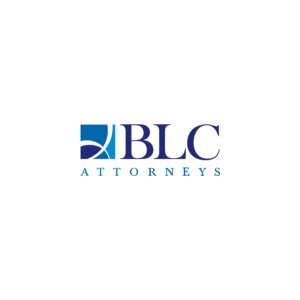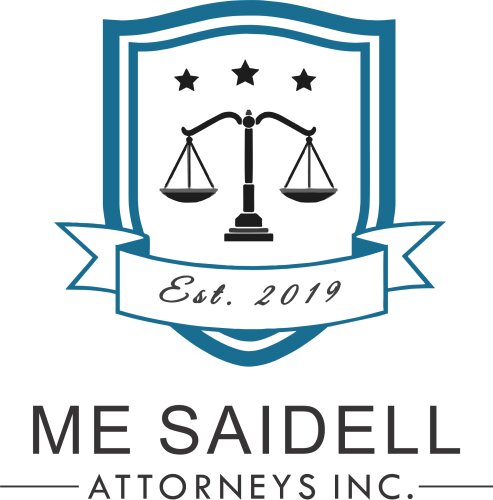Best Corporate Governance Lawyers in South Africa
Share your needs with us, get contacted by law firms.
Free. Takes 2 min.
Or refine your search by selecting a city:
List of the best lawyers in South Africa
South Africa Corporate Governance Legal Articles
Browse our 2 legal articles about Corporate Governance in South Africa written by expert lawyers.
- South Africa POPIA Compliance Checklist for Global Firms
- International firms must comply with POPIA if they process personal information within South Africa or use automated or non-automated means situated in the country. Compliance is built upon eight specific conditions, ranging from accountability to data subject participation. Every organization must appoint and register an Information Officer with the South... Read more →
- Resolving Shareholder Deadlocks in South African Companies
- Shareholders in South African private companies can proactively prevent deadlocks by including customized tie-breaker provisions in their Memorandum of Incorporation (MOI). The "Shotgun Clause" is a high-stakes exit mechanism that forces one party to buy out the other at a set price, ensuring a clean break when management is paralyzed.... Read more →
About Corporate Governance Law in South Africa
Corporate governance refers to the system of rules, practices, and processes by which companies are directed and controlled. In South Africa, corporate governance establishes a framework for achieving a balance between the interests of a company’s stakeholders - including shareholders, management, customers, suppliers, financiers, government, and the community. South Africa has earned a reputation for pioneering robust governance frameworks in the private and public sectors, largely influenced by the globally recognized King Reports on Corporate Governance.
The cornerstone of the South African approach is accountability, fairness, transparency, and responsibility within company structures. Both public and private companies are expected to apply these principles, not only to comply with the law but also to encourage sustainable business growth and ethical conduct.
Why You May Need a Lawyer
There are several situations where professional legal assistance is vital in matters of corporate governance, including:
- Setting up corporate structures or drafting founding documents such as memoranda of incorporation
- Ensuring compliance with the Companies Act, the King IV Report, or other statutory governance requirements
- Advising on director duties and liabilities, especially when there are conflicts of interest
- Managing shareholder disputes or changes in ownership structure
- Conducting due diligence during mergers, acquisitions, or restructuring
- Drafting and interpreting governance policies, codes of ethics, and board charters
- Handling whistleblower complaints or investigations into financial or ethical misconduct
- Dealing with regulatory investigations or penalties for non-compliance
- Assisting in annual reporting and disclosure obligations
- Guiding board performance assessments and director training requirements
Consulting a lawyer helps ensure that decisions comply with applicable laws and best practices, minimizing risk to the company and its stakeholders.
Local Laws Overview
The key legal framework for corporate governance in South Africa includes:
- The Companies Act 71 of 2008: This Act is the principal statute regulating companies in South Africa. It covers the formation, registration, operations, and dissolution of companies, including the roles, responsibilities, and duties of directors and prescribed officers.
- The King IV Report on Corporate Governance: While not a law, King IV provides principles and recommended practices for sound governance applicable to all organizations. Companies listed on the Johannesburg Stock Exchange (JSE) are required to apply these principles or explain deviations.
- Common Law Duties of Directors: These duties are supplemented by statutory provisions and include the duty to act in good faith, with care and skill, and in the best interests of the company.
- Other Legislation: Legislation such as the Financial Markets Act, the Public Finance Management Act, and sector- or industry-specific laws can also impact corporate governance requirements, especially for state-owned companies and financial institutions.
Key aspects to keep in mind include board composition and independence, risk management, stakeholder engagement, integrated reporting, and the increasing emphasis on ethical leadership and sustainability.
Frequently Asked Questions
What is the King IV Report on Corporate Governance?
The King IV Report is a set of governance principles and recommended practices for all types of organizations in South Africa. It promotes ethical leadership, corporate citizenship, and sustainability, and companies are expected to apply its principles or explain why they have chosen not to.
Are the King IV principles legally binding?
King IV is not law, but certain aspects are incorporated into JSE listing requirements and referenced within the Companies Act. Most listed companies must either apply King IV principles or provide valid reasons for any deviations.
Who is responsible for enforcing corporate governance compliance?
Enforcement mainly lies with company boards, shareholders, regulatory authorities like the Companies and Intellectual Property Commission (CIPC), and, in the case of listed entities, the JSE. Lawsuits can also be brought by affected parties for breaches of directors’ duties.
What are the main duties of a company director?
Directors are expected to act in good faith, exercise reasonable care and skill, avoid conflicts of interest, maintain confidentiality, and act in the best interests of the company at all times.
What are common challenges in corporate governance?
Common challenges include balancing interests of diverse stakeholders, managing conflicts of interest, ensuring transparency, adapting to regulatory changes, and promoting ethical leadership across all levels.
What happens if a director breaches fiduciary duties?
A director who breaches fiduciary duties may face personal liability for losses, removal from office, fines, civil claims, and even criminal charges for fraudulent or reckless conduct.
Is corporate governance only relevant to large companies?
No. While large and listed companies have more formal governance requirements, principles of good governance apply to all companies, regardless of size or ownership structure. Smaller organizations can benefit from robust governance to build trust and credibility.
What is integrated reporting?
Integrated reporting means presenting a holistic account of how a company creates value over time, including financial and non-financial aspects such as social, environmental, and governance factors. It is a crucial component of King IV.
Can shareholders take action against directors?
Yes, shareholders can bring action against directors for breaches of duty, misconduct, or financial losses caused by poor governance. This can be through direct litigation or derivative actions on behalf of the company.
How often should governance policies be reviewed?
Governance policies should be reviewed at least annually, or whenever there are significant legal or industry changes. Regular assessment ensures that policies remain current and effective.
Additional Resources
- Companies and Intellectual Property Commission (CIPC): The regulator overseeing company registrations and compliance matters.
- Institute of Directors in South Africa (IoDSA): Provides training, guidance, and accreditation for directors and governance professionals.
- Johannesburg Stock Exchange (JSE): Publishes governance requirements for listed companies.
- South African Institute of Chartered Accountants (SAICA): Offers resources on corporate reporting and governance best practice.
- South African Corporate Governance Forum: Advocacy and education for improved governance standards.
Next Steps
If you require legal advice or need assistance with corporate governance compliance, consider the following steps:
- Identify the specific governance challenge or area of concern within your business.
- Gather all relevant company documentation, such as constitutions, policies, minutes, and shareholder agreements.
- Research local law firms or practitioners specializing in corporate governance and corporate law.
- Arrange an initial consultation to discuss your needs and possible solutions.
- Follow up with ongoing legal support, particularly if your company is undergoing structural changes, facing regulatory investigations, or expanding into new markets.
Seeking legal counsel early in matters of corporate governance helps protect your business, ensures legal compliance, and fosters a culture of accountability and transparency.
Lawzana helps you find the best lawyers and law firms in South Africa through a curated and pre-screened list of qualified legal professionals. Our platform offers rankings and detailed profiles of attorneys and law firms, allowing you to compare based on practice areas, including Corporate Governance, experience, and client feedback.
Each profile includes a description of the firm's areas of practice, client reviews, team members and partners, year of establishment, spoken languages, office locations, contact information, social media presence, and any published articles or resources. Most firms on our platform speak English and are experienced in both local and international legal matters.
Get a quote from top-rated law firms in South Africa — quickly, securely, and without unnecessary hassle.
Disclaimer:
The information provided on this page is for general informational purposes only and does not constitute legal advice. While we strive to ensure the accuracy and relevance of the content, legal information may change over time, and interpretations of the law can vary. You should always consult with a qualified legal professional for advice specific to your situation.
We disclaim all liability for actions taken or not taken based on the content of this page. If you believe any information is incorrect or outdated, please contact us, and we will review and update it where appropriate.
Browse corporate governance law firms by city in South Africa
Refine your search by selecting a city.
















